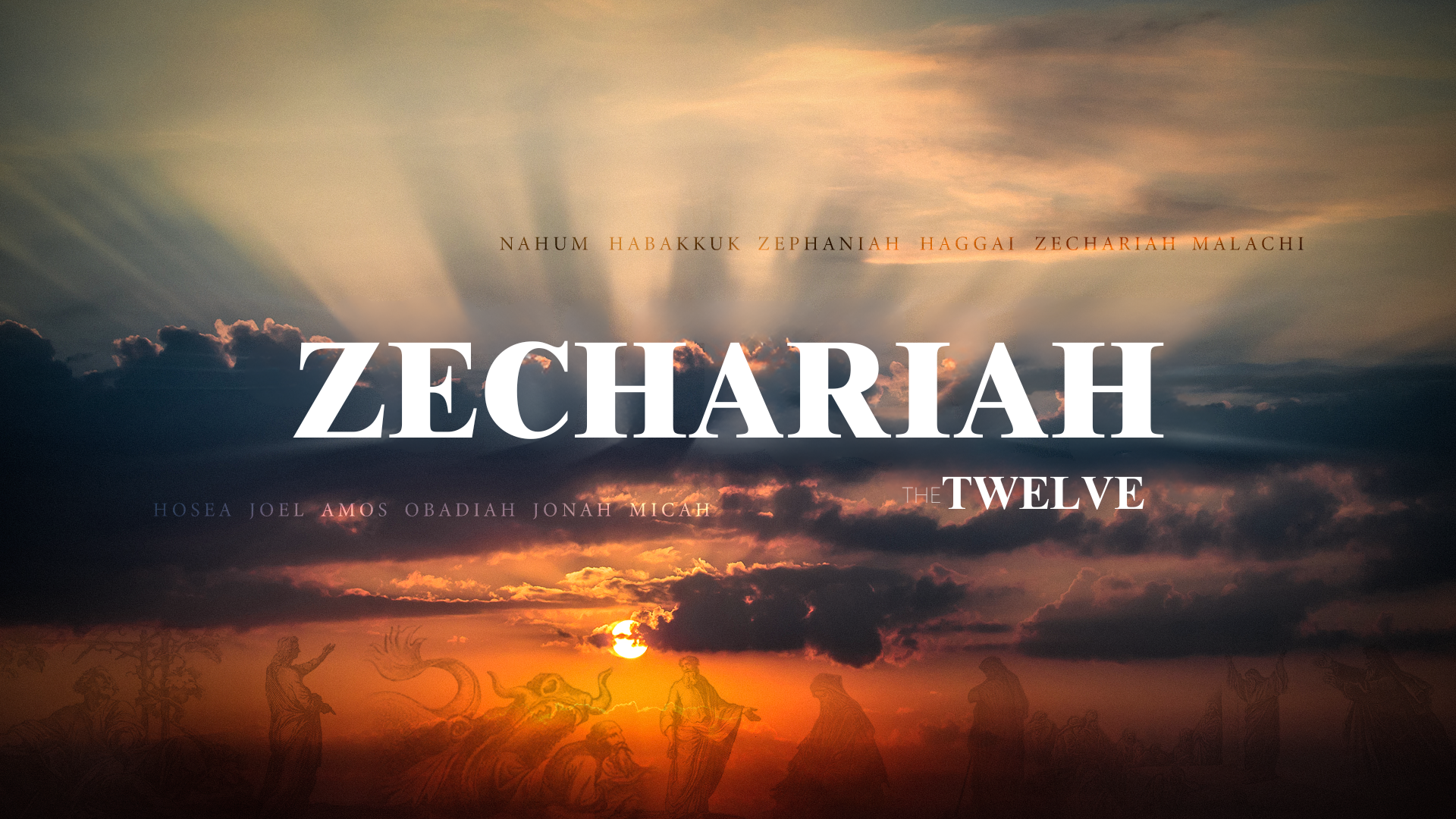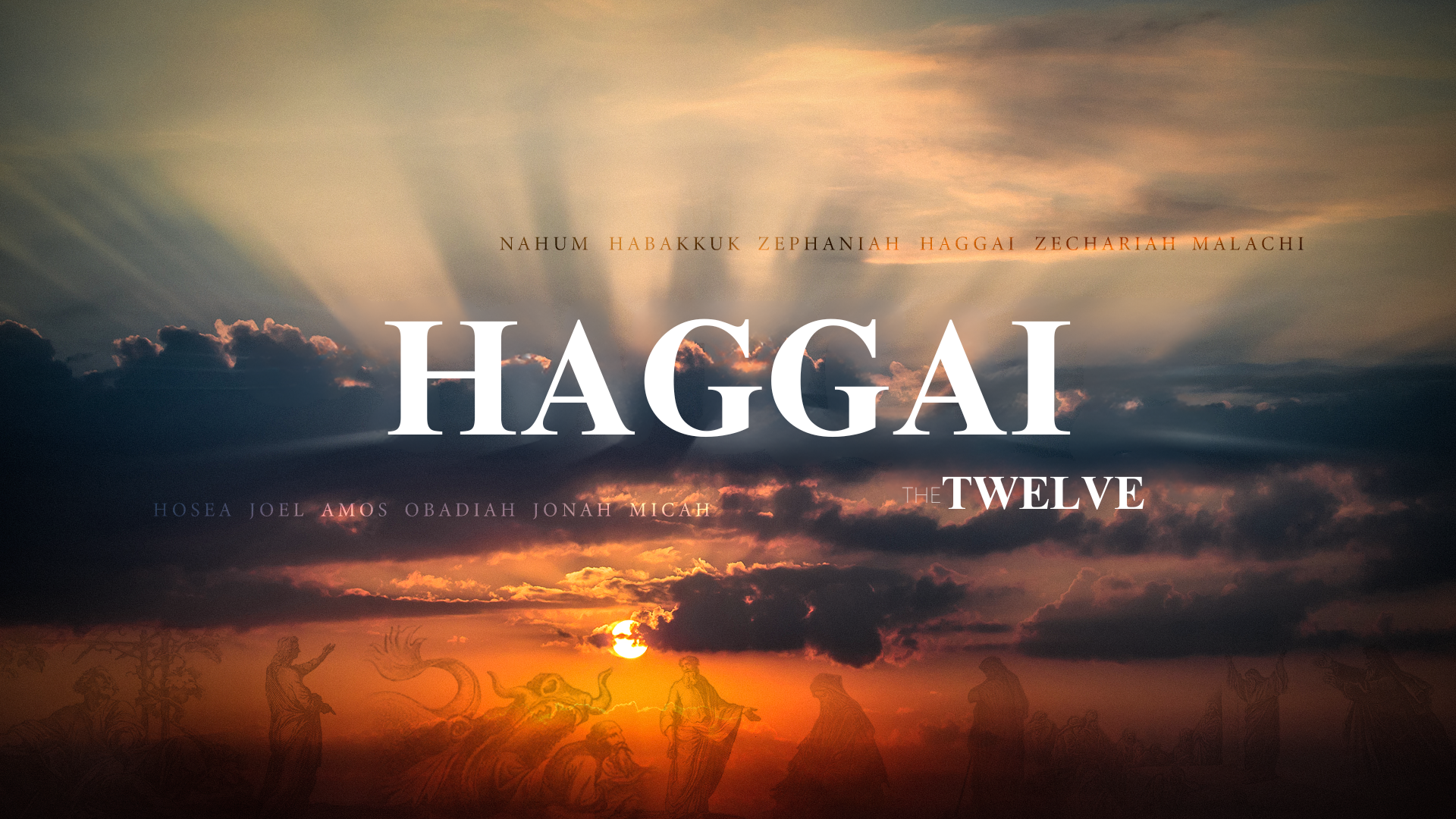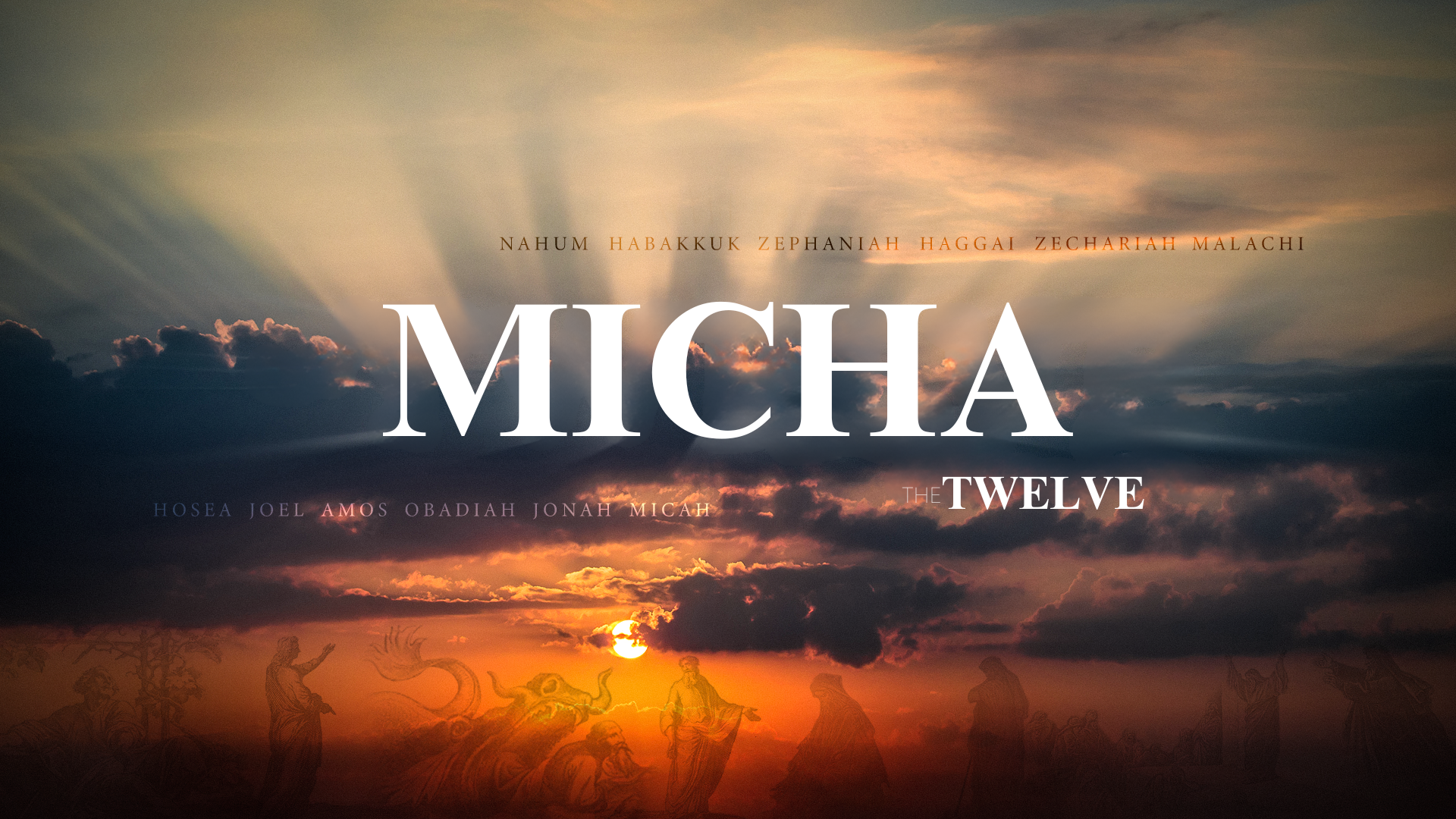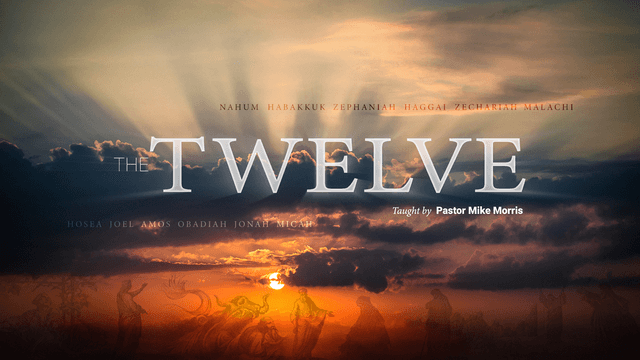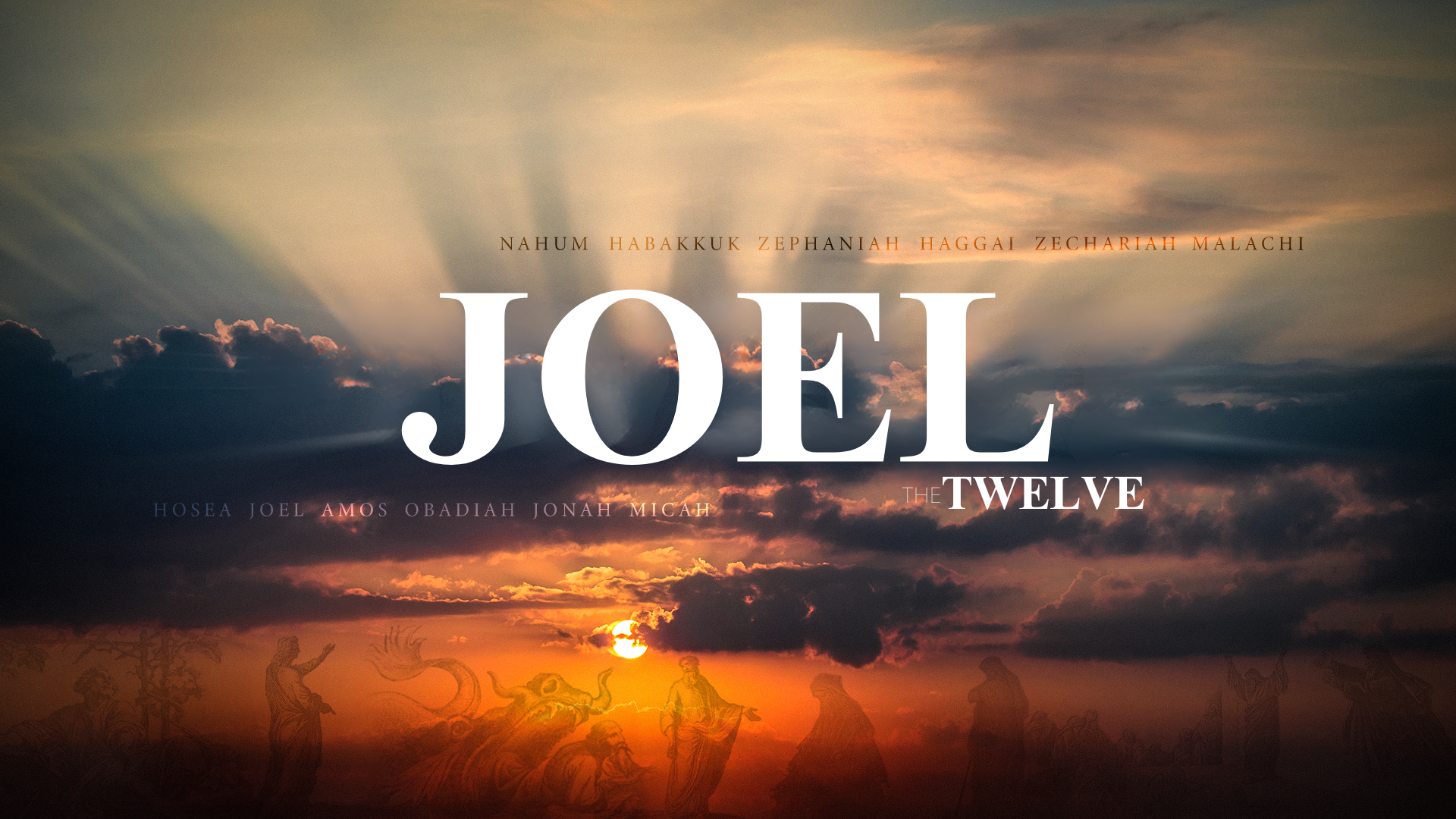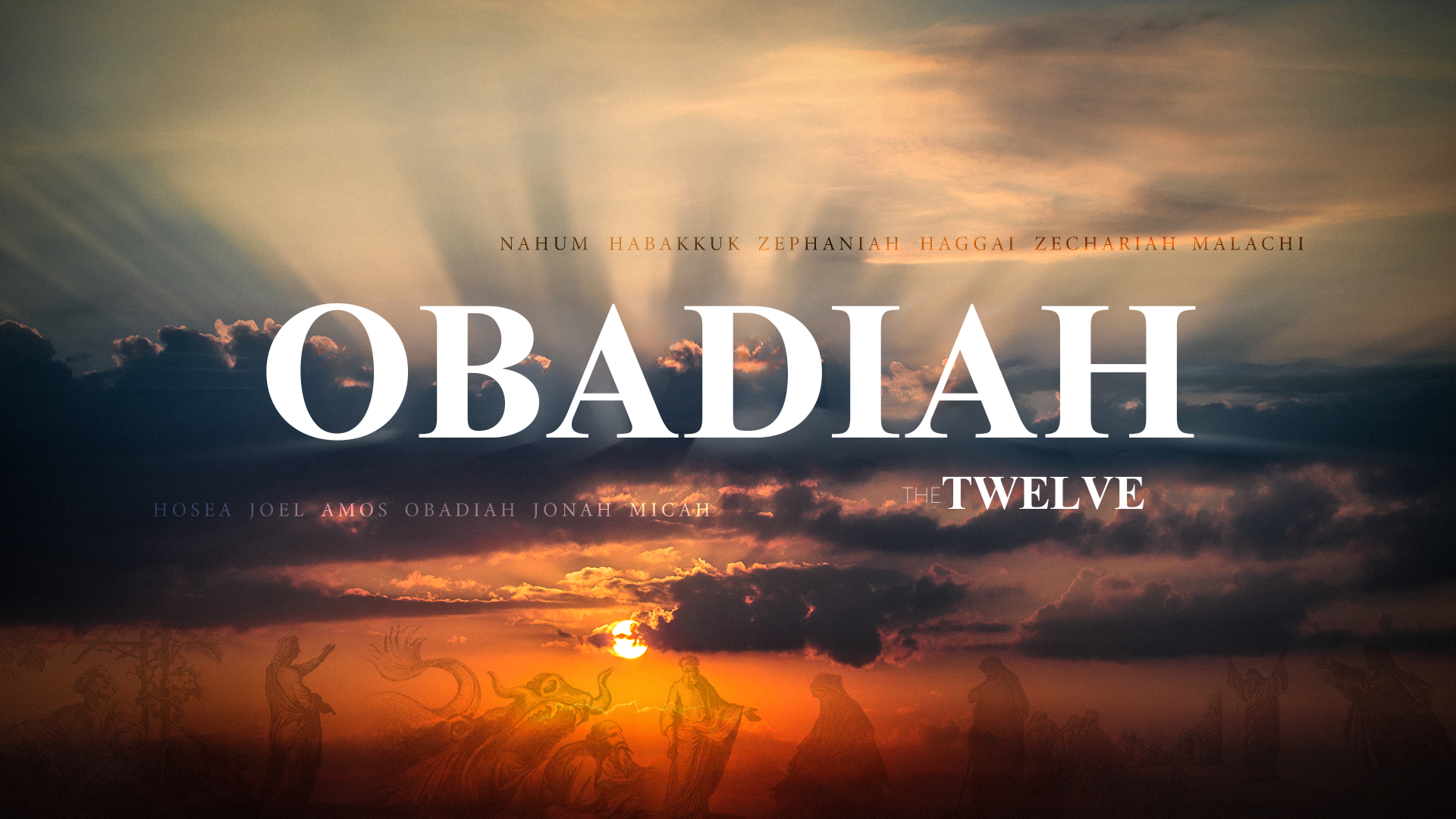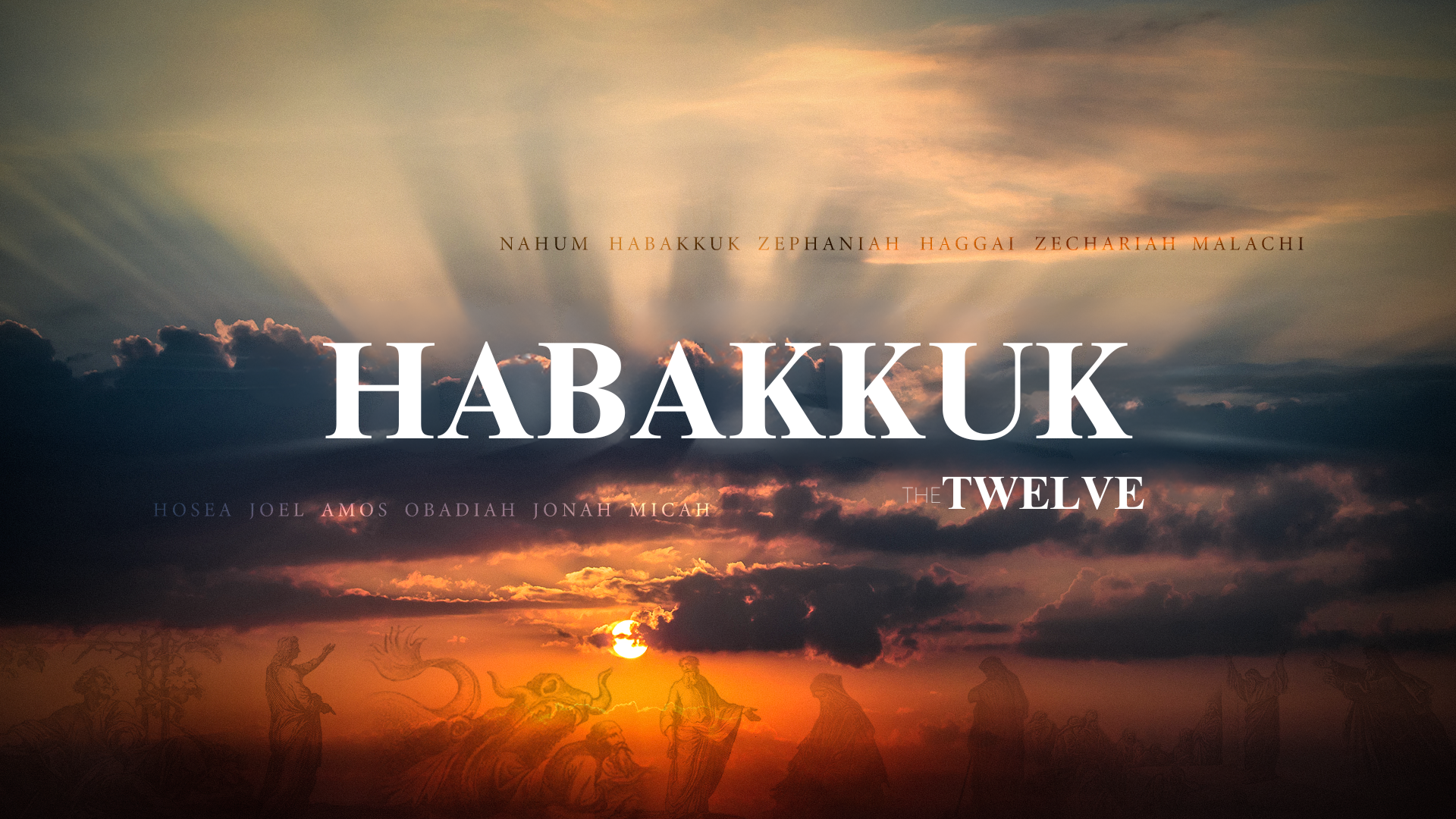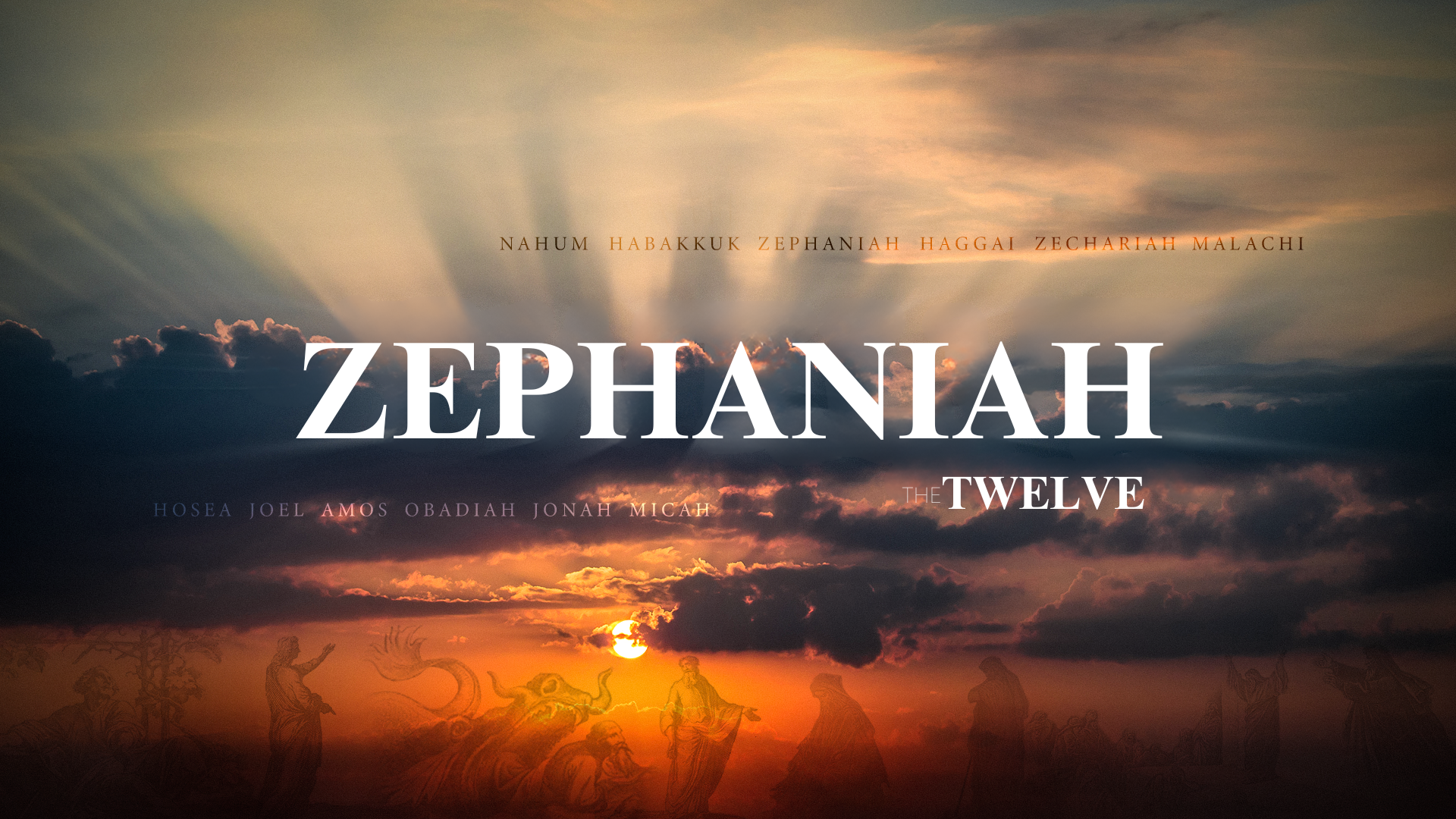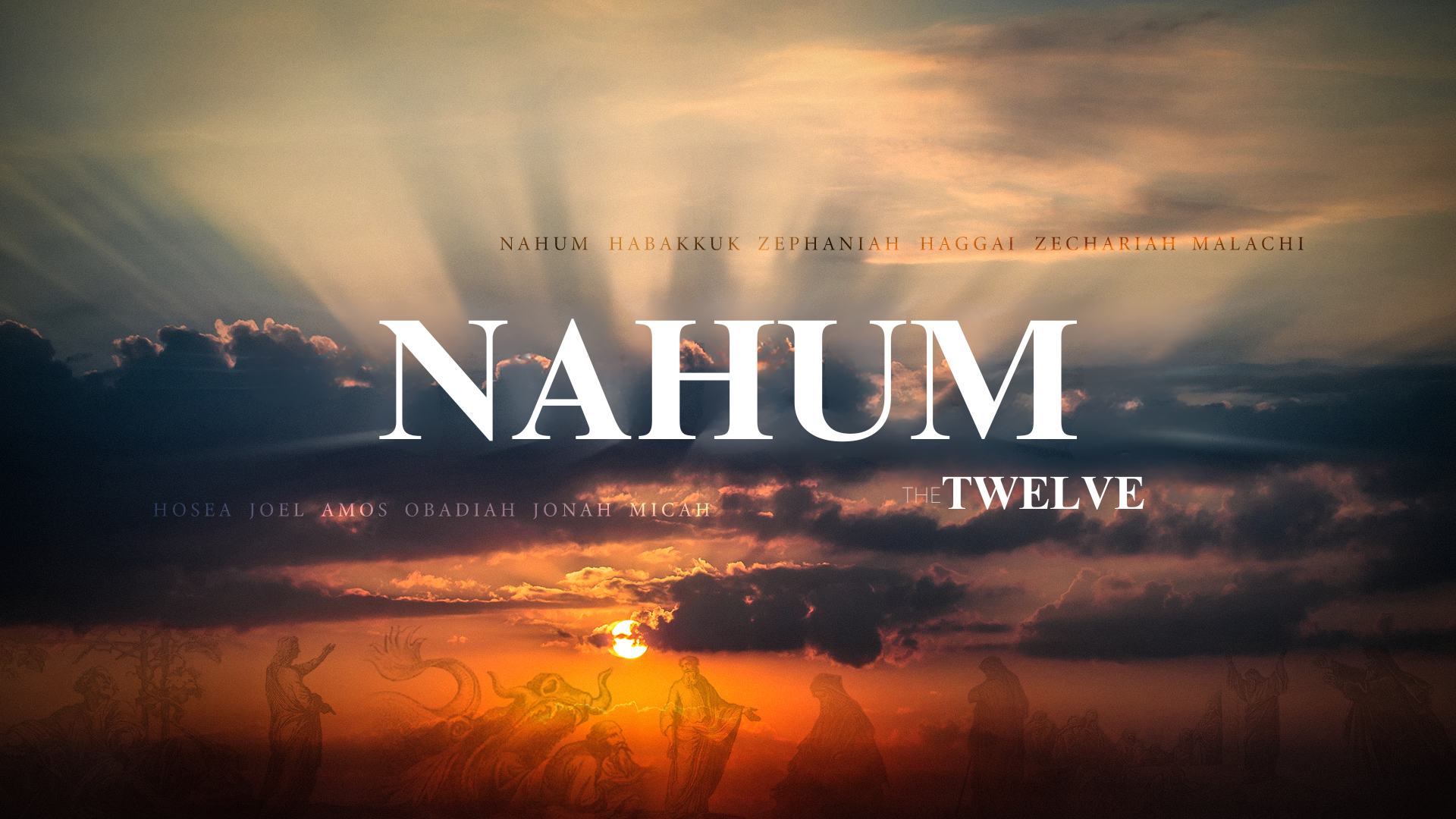MANUSCRIPT
Last week we covered chapters 2 and 3 as we saw Micah introduce Israel’s Shepherd-King but also confront the people with their sins in chapter 3...
The book of Micah is the transitional prophecy of the Twelve, the bridge between the prophets who spoke to Israel in the north and those who spoke to Judah in the south...his message is the final death knell for Israel and the proclamation of the nearing judgment for Judah...to remind us of that transitional role, I’ve added him to this slide we saw at the beginning of the series...this slide places him as the first prophet speaking to Judah, during the reign of Hezekiah, consistent with Jeremiah 26...
Now in chapters 4 and 5 we turn from the “rebuke” portion of the second oracle to the “restoration” portion...
As we begin, I want to center our thoughts on one word...hope
After a relentless rebuke of Israel, and in part of Judah as well, God now blesses His people with a shining vision of hope for the future...as bad as things were, as bad as they were still to be, they would not always be that way...for the Almighty God is still good and faithful, and after His rebuke will come hope and restoration and life...
The term “latter days” is used 15 times in the ESV...always future, but not always about God’s people...in Deuteronomy, Moses prophesies that Israel will experience tribulation because of their idolatry, but that they will return to God in the “latter days”; in Jeremiah, the term refers to future understanding to be given to God’s people, and to the restoration of Moab and Elam; in Daniel, twice the term refers to the distant future, the end times, including Nebuchadnezzar’s dream in chapter 2 and Gabriel’s discourse in chapter 10; you might recall Hosea using the term in chapter 3 verse 5... (Hosea 3.5)
Afterward the children of Israel shall return and seek the Lord their God, and David their king, and they shall come in fear to the Lord and to his goodness in the latter days.
And then we have this use here in Micah 4.1...
As we go through these opening verses, we need to place this in context with the passage that comes just before it, chapter 3 verses 9 through 12...there are several links between the two that help us understand the comparison Micah creates between the Jerusalem and Judah of his day, and the future Jerusalem of his prophecy...
Let’s compare the two passages...
Hear this, you heads of the house of Jacob
and rulers of the house of Israel,
who detest justice
and make crooked all that is straight,
10 who build Zion with blood
and Jerusalem with iniquity.
11 Its heads give judgment for a bribe;
its priests teach for a price;
its prophets practice divination for money;
yet they lean on the Lord and say,
“Is not the Lord in the midst of us?
No disaster shall come upon us.”
12 Therefore because of you
Zion shall be plowed as a field;
Jerusalem shall become a heap of ruins,
and the mountain of the house a wooded height.
This passage could hardly be more dark and depressing...look at the details...
Israel’s leaders detest and distort justice, they accept bribes to ignore the truth, and they give judgments to damage and destroy the poor
Their prophets and priests preach peace to the rich and powerful but war to the poor and weak, they despise the word of God, and reject honesty and integrity
The ruling elites scorn God’s commandments and violate His Law, yet expect Him to protect them and ensure their prosperity despite their disobedience
Their pride and arrogance mirror the worst of lost mankind’s rejection of the Lord
And for their sin, Zion will be destroyed...plowed as a field, turned into a heap of ruins, the mount of Solomon’s temple reduced to a forest
No longer will the mountain of God be a place of worship and praise, of study and learning, but it shall become merely a field and a forest, stripped of its glory and greatness, a heap of ruins left as a reminder of what the Temple Mount and the nation itself had once been...
This prophecy is the worst nightmare of Judah...the destruction and devastation that befell Israel would now come to them...
But all that changes as chapter 4 opens...
It shall come to pass in the latter days
that the mountain of the house of the Lord
shall be established as the highest of the mountains,
and it shall be lifted up above the hills;
and peoples shall flow to it,
2 and many nations shall come, and say:
“Come, let us go up to the mountain of the Lord,
to the house of the God of Jacob,
that he may teach us his ways
and that we may walk in his paths.”
For out of Zion shall go forth the law,
and the word of the Lord from Jerusalem.
3 He shall judge between many peoples,
and shall decide disputes for strong nations far away;
and they shall beat their swords into plowshares,
and their spears into pruning hooks;
nation shall not lift up sword against nation,
neither shall they learn war anymore;
What an abrupt change...these first three verses are nearly exactly reproduced in Isaiah 2.2-4...it’s unknown which came first, or if they both drew from a single outside source, but it is clear that the Spirit intended to repeat the same message through these two contemporary prophets...
As the end of chapter 3 was dark and filled with only judgment and rebuke, so this passage is filled with astonishing light and hope...
The failed and corrupt leaders of Israel are no more...in the Jerusalem of these latter days, the leader is the Lord Himself...
He will teach the people His ways, not relying on the greedy prophets and priests...
He will judge between peoples and decide disputes for strong nations, not depending on unethical and bribe-seeking judges in the city gates...
Instead of the people of Jerusalem leaving the city in chains and disgrace, beginning their journey into exile in Babylon, the nations will stream to the mountain of God as rivers stream to the sea, saying, “let us go up...”
Instead of widespread rejection of the word of the Lord, people will seek to know His ways and walk in His paths...
Now the glory that was lost in the Babylonian destruction of the Temple will be restored as Jerusalem becomes again the “mountain of the house of the Lord,” transformed from a wooded hill to the highest of the mountains...
As Micah turns from the rebuke of chapter 3 to the restoration of chapter 4, this introduction to the oracle of promised renewal sounds as if Micah is seeing a far distant peak in our prophetic landscape...similar in tone to Daniel and Hosea...let’s look more closely at the text...
“It shall come to pass...” -- the classic prophetic assurance that the covenant God remains sovereign and in control of human affairs, despite the apparent uncertainty of life in this world...”in the latter days” -- as we noted, this is always a future setting, but when in the future is more difficult to determine...but there are some clues for us in this passage that will help us place this prophecy in its proper timeframe...
Just in these first three verses, we see that this time is a time when many nations are turning not to spirituality or the god of this world, but in to the God of Israel...Jerusalem becomes the preeminent city in the world, the highest of the mountains, chief among the nations...people will seek to learn the ways of the Lord, and seek to walk in those ways...they will accept God’s judgment, experiencing His peace, and not just lay aside, but actually destroy, the implements of war in favor of peaceful and productive pursuits...
We know this description, in its entirety, doesn’t literally fit any period of history from Micah’s day to this...but given that the “latter days” began with the first coming of Christ, there are some elements since then that are at least moving toward fulfillment...
Since Jesus, and the coming of the Holy Spirit at Pentecost, the gospel has gone out around the world...and people around the world, if not nations as a whole, are turning to God...the elect are being called out and are coming to faith in Christ...
In Hebrews 1.2, the incarnation of Jesus inaugurates the “last days”...
in these last days he has spoken to us by his Son, whom he appointed the heir of all things, through whom also he created the world.
And in Acts 2.17, the coming of the Holy Spirit is an important element of the last days, as Peter quotes the prophet Joel...
“‘And in the last days it shall be, God declares,
that I will pour out my Spirit on all flesh,
and your sons and your daughters shall prophesy,
and your young men shall see visions,
and your old men shall dream dreams;
...but the complete fulfillment of this prophecy still awaits a future time...
In Micah’s vision, Jerusalem is the center of the world...
It shall come to pass in the latter days
that the mountain of the house of the Lord
shall be established as the highest of the mountains,
and it shall be lifted up above the hills;
Is this highest in importance, or highest in physical elevation? I think the answer is “both” -- it’s clear that the city will be the most important, but Zechariah 14 also indicates that it will physically be the “highest of the mountains”...Zion in Jerusalem will be the preeminent place and power in the world...in Micah’s day, earthly power was shifting from Assyria to Babylon...but in the latter days, there will be only one powerful place, one center of gravity, and that will be the mountain of the house of the Lord...
Micah begins by describing the lifting up, the exaltation, of the house of the Lord, but next he describes the response of people to the presence of God in this place...
and peoples shall flow to it,
2 and many nations shall come, and say:
“Come, let us go up to the mountain of the Lord,
to the house of the God of Jacob,
that he may teach us his ways
and that we may walk in his paths.”
For out of Zion shall go forth the law,
and the word of the Lord from Jerusalem.
Today, we know how people respond to God...without His sovereign proactive work in bringing them to life, people in their lost state are enemies of God, not followers of God...they hate the light, rather than seeking out the light...but in this prophecy, we find a positive response... peoples, many nations, shall flow, like water, to the mountain of the Lord...their desire will be for Him...we find this same word in Zechariah 8.20-23...
20 “Thus says the Lord of hosts: Peoples shall yet come, even the inhabitants of many cities. 21 The inhabitants of one city shall go to another, saying, ‘Let us go at once to entreat the favor of the Lord and to seek the Lord of hosts; I myself am going.’ 22 Many peoples and strong nations shall come to seek the Lord of hosts in Jerusalem and to entreat the favor of the Lord. 23 Thus says the Lord of hosts: In those days ten men from the nations of every tongue shall take hold of the robe of a Jew, saying, ‘Let us go with you, for we have heard that God is with you.’”
Here in Micah, the people of the nations say to each other, “let us go up...” ... they encourage each other to seek out the house of the God of Jacob...the presence of the Lord becomes something to run to, not away from...
And what are the peoples seeking after? In Zechariah, it is to entreat the favor of the Lord...here, those who seek the Lord desire that He would teach them His ways...
What a difference from today! Just picture the nations of the world gathered at the United Nations, or the European Union, or the African Union, or meetings of Asian nations...can we imagine the 196 or so countries of the world meeting and cooperating together to seek the Lord? We would certainly know that we are in a different world when that happens...
And even more shocking, the peoples of the world not only want to know the Lord and His ways, they want to know so they can walk in His paths...their desire is not just to know Him, but to follow after Him...to obey His commandments...
While we are living in the “latter days” even now, we are far from this...people groups and nations flowing toward Jerusalem to know and follow the Lord...this is consistent with the Messianic age, even the time of the millennial kingdom...as all, or virtually all, those who remain on earth know and love the Lord God...their desire will be to honor and exalt Him...for from Him will come the Law of the Lord and the word of God...and the people of the world will finally realize the immeasurable value of Scripture and strongly desire it...
What does the Lord do in this time? He is the King and Judge of all the earth...look at v 3...
3 He shall judge between many peoples,
and shall decide disputes for strong nations far away;
In this day, the Lord will perform the same function among the nations of the world as kings and judges did within the city gates, or within nations...the Lord of all the earth will truly be the Lord of all the earth, not just in spiritual terms but in terms of being physically present, active and engaged in leading and judging all the peoples of the earth from His capital city of Jerusalem...interestingly, in this future day, there are still nations, groups of people, and they still have cases that require a judge to decide between or among them, there are still disputes that require decisions from a reigning sovereign monarch...so it isn’t that there is complete agreement, or no differences of any sort, it’s that there is now a perfect and holy and true and righteous Judge to resolve those disagreements and differences, even at the level of what today we would call international relations or conflict...and lest we think this is some sort of regional arrangement, Micah emphasizes the point that the Lord will judge strong nations far away...in Micah’s day, he might have thought of the great powers of his world...Assyrian, Babylon, and Egypt...those empires, and every empire to follow...the Medo-Persians, the Greeks, the Romans, and the empires of the middle ages and our modern day...the God of Heaven and Earth is the sovereign over all of them...as Daniel sees in chapter 2 of that prophecy, His final kingdom is an everlasting one... a stone was cut out by no human hand...the stone that struck the image became a great mountain and filled the whole earth.
Again, Micah’s vision returns to the people of the earth...what do they do in this final, earth-filling kingdom of God, which shall never pass away?
and they shall beat their swords into plowshares,
and their spears into pruning hooks;
nation shall not lift up sword against nation,
neither shall they learn war anymore;
With the righteous Judge on the throne, weapons of war are no longer needed...disputes are settled by the King without mankind resorting to violence and bloodshed...the presence of the eternal Lord ends all fighting and battles, and with no need for war, there is no need for the weapons of war, or armed forces, or learning the art and strategy of war...so the people of the earth look for better uses for the implements of battle, and they take those weapons that were once important and stockpiled, and in which the nations trusted, and they turn them to better purposes, such as raising crops and tending orchards...
This phrase, “beat their swords into plowshares,” found here and in Isaiah, has been adopted by some in the world, most ironically, in 1959, by the Soviet Union as they donated a bronze statue to the United Nations entitled “Let us Beat Swords into Plowshares” -- perhaps the only time an atheist communist nation quoted the Bible in a piece of art...
But what the world forgets is the verse just before the swords to plowshares verse...that the blessing of peace is based on the sovereign authority and justice of the Almighty God, not the efforts of mankind...the world wants peace, but they don’t yet want the Prince of Peace...and no one experiences the peace of this kingdom without knowing the King, Jesus Christ...John 14.27 tells us the truth about His peace...
27 Peace I leave with you; my peace I give to you. Not as the world gives do I give to you. Let not your hearts be troubled, neither let them be afraid.
There is only one source of true peace: the Almighty God...
What does this kind of peace -- to use the Hebrew word, shalom -- look like? Verse 4...
4 but they shall sit every man under his vine and under his fig tree,
and no one shall make them afraid,
for the mouth of the Lord of hosts has spoken.
In this kingdom, people are at peace...Micah uses a familiar picture to convey this truth...he reaches back to the book of Deuteronomy to quote Moses as he spoke to the people of Israel as they were preparing to cross over into the land God had promised them as their possession...Deuteronomy 8.7-10...
7 For the Lord your God is bringing you into a good land, a land of brooks of water, of fountains and springs, flowing out in the valleys and hills, 8 a land of wheat and barley, of vines and fig trees and pomegranates, a land of olive trees and honey, 9 a land in which you will eat bread without scarcity, in which you will lack nothing, a land whose stones are iron, and out of whose hills you can dig copper. 10 And you shall eat and be full, and you shall bless the Lord your God for the good land he has given you.
The people were meant to know the peace and abundance of God, His shalom, in the land He had prepared for them...but they would not obey...they rebelled against His covenant, and instead turned to the false gods of Canaan, and became false themselves...sadly, their history was marked by the idolatry and injustice we’ve read about in Amos, Hosea, and now Micah...and for their duplicity and disloyalty against their God, they were taken into exile...but now Micah gives them hope, hope that Israel will yet experience all that God desires for them...peace, provision, and protection...they won’t be afraid any longer...this is being spoken to these nations right on the edge of being taken away in chains to die on foreign soil...but following that rebuke, they will be restored...
But the people say, “but how can we know, Micah? How can we know it will one day come true?”
Just one reason...because “the mouth of the Lord of hosts has spoken”...
But Micah knows that this promise is not for all people...hear verse 5...
5 For all the peoples walk
each in the name of its god,
but we will walk in the name of the Lord our God
forever and ever.
There are others will not turn to the God of the Bible, to the Lord Jesus Christ...we know that despite the word of the gospel going to the nations, and many turning to the God of the house of Jacob, not all will repent and come to Christ...there are many who will choose to walk in the name of their god, whether that god is named power, fame, money, pride, or even Self...even those who say they have no god...
But those who know the Lord God, the God of Abraham, Isaac, and Jacob, the God of Heaven and Earth, and His only Son, Jesus Christ...those who know Him will walk in His Name, in His power, in His authority, beside Him...forever and ever
What lessons would the Spirit, who leads us into all truth, teach us from this message through Micah to God’s people?
First, this passage both promises and reminds us that there is hope in the Lord...Paul affirms the gift of hope in the book of Romans...Romans 12.12 and 15.4...
12 Rejoice in hope, be patient in tribulation, be constant in prayer.
4 For whatever was written in former days was written for our instruction, that through endurance and through the encouragement of the Scriptures we might have hope.
Second, a message we know well: keep your eyes on eternity...remember that the turmoil and drama of this world is not all there is, nor is it the end state of human history...there will be a day when the mountain of the house of the Lord will be lifted up and nations will flow to it, and His people will no longer suffer in fear...the pain and death of these days will not always be...to quote Micah, “It shall come to pass...for the mouth of the Lord of hosts has spoken”
Third, seek after the ways and the word of the Lord...saints, I know you are willing and desiring to hear God’s word...but are you willing to be changed by it, to apply it in the Spirit to your life, to obey it every day? Hear Matthew 7.24-27...
24 “Everyone then who hears these words of mine and does them will be like a wise man who built his house on the rock. 25 And the rain fell, and the floods came, and the winds blew and beat on that house, but it did not fall, because it had been founded on the rock. 26 And everyone who hears these words of mine and does not do them will be like a foolish man who built his house on the sand. 27 And the rain fell, and the floods came, and the winds blew and beat against that house, and it fell, and great was the fall of it.”
As God’s people, dear church, build your life on God’s word and rejoice in hope...

Taught by Mike Morris
Associate Pastor of Verse By Verse Fellowship
The Twelve Series
